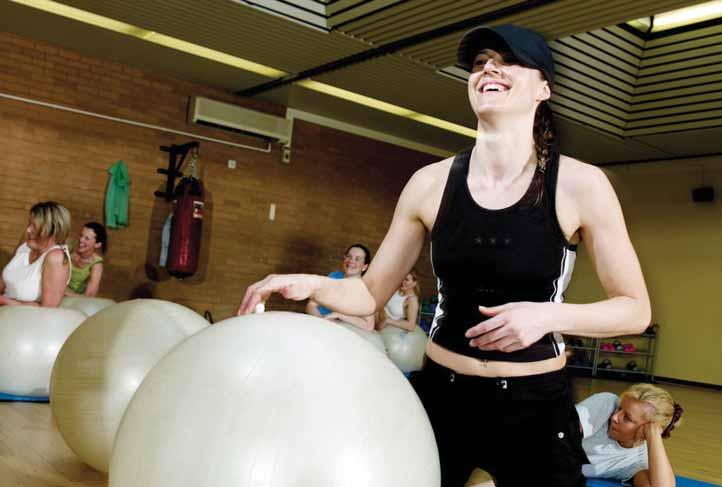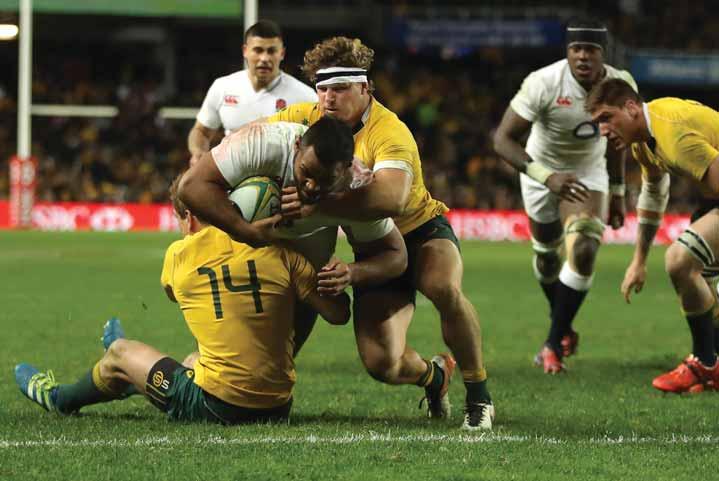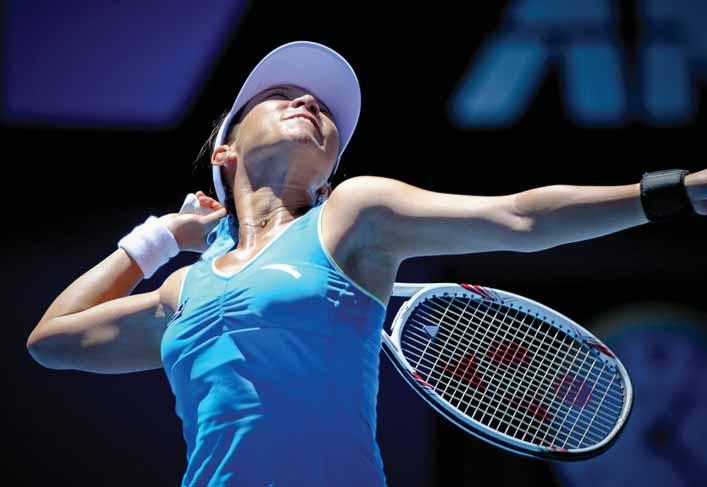
13 minute read
So what’s new?
Sowhat’snew?
Latest launches and new brews to consider stocking at the bar.
Old Mout cider campaign
Old Mout cider has launched a multi-million pound campaign designed to increase consumer awareness and build on the brand’s philosophy of encouraging drinkers to get ‘the Kiwi taste for adventure’. Old Mout, which originates from New Zealand, launched into the UK market in 2014 and is contributing 17% volume growth to the market in the on-trade. Emma Sherwood-Smith, Brand Unit Director of Cider Brands at HEINEKEN, said: “Old Mout drives value for licensees –a branded glass, filled with ice, a cold Old Mout and a garnish of fresh fruit, can command a more premium price and is a real point of difference to other ciders.”
• www.heineken.co.uk
Carlsberg UK’s Three Lions Ale
Carlsberg UK’s ‘Three Lions Ale’ was launched for UEFA EURO 2016. The 4.1% ABV golden ale is available for the duration of the tournament and is supported with a bespoke pump clip featuring the England team’s official three lions emblem, behind a golden scroll reading ‘The Three Lions’.
• www.wedelivermore.co.uk
Carlsberg UK invests in Spanish beer
Carlsberg UK has announced a major investment in 5.1% premium Spanish beer brand Mahou, including a partnership with The Telegraph and TV Michelin-starred chef and columnist, Mark Sargeant. Sargeant will present a series of four videos, alongside acclaimed chefs from three modern Spanish tapas restaurants in the UK with the aim of bringing ‘the spirit of Madrid’ to life for consumers. The beer is imported from Spain and is available in 30l kegs and 330ml bottles. New POS includes a bespoke pint glass and a 20cm-tall tap handle will support the campaign.
• www.carlsbergwedelivermore.co.uk
Pravha launches into on-trade
Pravha, the 4% ABV premium world beer from the brewers of Staropramen, is described as having the gentle bitterness of a high quality Czech pilsner while also being crisp, light and refreshing. It is available exclusively on draught and is being supported by point of sale material including stylish glassware, branded fridges, bar runners, coasters and signage.
• www.molsoncoors.com
‘WKD Blush Hour’ celebrates Saturday nights
The launch of ‘WKD Blush Hour’ –a 10-week digital and social media campaign headlined by Binky Felstead, designer, beauty blogger and star of TV series Made in Chelsea –is designed to associate WKD Blush with getting Saturday nights off to a great start. The weekly 7pm Saturday night programme runs until September on Mixcloud radio and will be publicised on WKD and Binky’s social media pages, Twitter, Facebook and Instagram. WKD Blush was launched in February following research amongst 2,000 18 to 24-year olds. The research highlighted opportunities for expansion of the RTD category which generates annual sales approaching £226 million in the on-trade.
• www.shs-drinks.co.uk • t. 01452 378500
Grolsch launches limited edition font and glassware
Grolsch’s ‘Unconventional by Tradition since 1615’ campaign sees limited edition fonts and glassware available to the on-trade. The campaign, says the company, ‘heroes the brand’s essence of originality and its belief that an open-minded, unconventional approach to life is what creates the most interesting, progressive and original ideas and innovations’. Grolsch, which celebrated its 400th birthday last year, is also releasing colouring-in coasters with accompanying pen pots.
• www.molsoncoors.com
Molson Coors and Bavaria N.V. partnership announced
Molson Coors UK is to have the exclusive rights in the on- and off-trade to the sales, distribution and customer marketing of Bavaria and its portfolio of brands in the UK, consisting of Bavaria Premium, Bavaria 0.0%, Hollandia, Holland Import and Claro. Bavaria 0.0% is the world’s first 0.0% alcohol beer according to the company and current number 2 in the UK non-alcohol category.
• www.molsoncoors.com
Hi-Spirits to distribute Paddy
Hi-Spirits is to distribute Paddy, the world’s fourth biggest Irish whiskey brand, in the UK from 1 July following the acquisition of the Paddy brand by US spirits company Sazerac in May. Dan Bolton, managing director of Hi-Spirits, said: “We have a very successful track record in growing Sazerac brands, including Buffalo Trace and Fireball, in the UK market. The addition of Paddy, coming hot on the heels of Sazerac’s acquisition of Southern Comfort and Tuaca earlier this year, means it’s an exciting –and busy –time for HiSpirits.”
• www.hi-spirits.com
Stella Artois returns as official Wimbledon beer
Stella Artois has developed an ad campaign to mark its return as Official Beer of the Wimbledon Championships. The new ad campaign accompanies the brand's limited edition Wimbledon packaging which includes a special edition 660ml bottle with a white and red wrap design, as well as a variety of on and off trade activity.
• www.wimbledon.stellaartois.com/ the-time-portal
Smirnoff launches ciders
Smirnoff hopes to revolutionise the Fruit Cider category with the launch of Smirnoff Cider. The two flavours – Raspberry & Pomegranate and Passionfruit & Lime –are lightly fizzed ciders with a blend of crisp, fruit flavours combined with Smirnoff vodka.
• www.diageo.co.uk
Governmentstrategy
When Sporting Futures: a new strategy for an active nation was published in December 2015 it marked the biggest shift in government policy on sport for more than a decade, according to Tracy Crouch, MP Minister for Sport, Tourism and Heritage.
At the heart of the new strategy lies an unwavering focus on how publicly funded sport can work better for the taxpayer, benefitting people across the country.
Our focus in the future will be on the benefits that sport can bring to people and to society, built around a simple set of outcomes: physical wellbeing, mental wellbeing, individual development, social and community development and economic development. Public funding will be directed to delivering these outcomes and success will be measured against improvements in each of them.
We will be working to maximise sporting success at home and internationally, to get more people from every background regularly and meaningfully involved in sport, and to deliver a more productive, sustainable and responsible sport sector.
The sporting landscape has changed enormously in the last decade with shifting social patterns giving rise to new activities while others decline in popularity due, in part, to unprecedented pressure on leisure time and competing demands for people’s attention. Any new strategy has to tackle these changes head on.
This is what Sport England’s new investment strategy seeks to do: put the customer first, focus on those least active and transform how sport is delivered across the country. We should not underestimate the scale of the change that is needed across the sector, but we should also see this as an opportunity to do what we do well even better. It is the beginning of an exciting journey, but the transformation will not happen overnight.
The legacy of hosting the Olympic and Paralympic Games has built the foundations for this new strategy.
London 2012 propelled this country into the sporting superpower bracket and it is this momentum on which so much of our new strategy is based. The new, stronger role for volunteering capitalising on the phenomenon of the Games Makers. The strengthening of our support for major sporting events –helping to inspire a nation to take part in sport. The focus on under-represented groups –founded in what the Paralympics showcased so fantastically, that sport is for everyone.
Sport in this country runs broader and more deeply than the legacy of London 2012, though. It can have an impact on almost every aspect of everyone’s life and it is this potential that we in Government, along with Sport England and the sport sector, will seek to achieve. Working together we can fulfil the ambition of a truly active nation. “ Sport
has an incredible power to do social good and that is what our new strategy is all about. We will invest in sport and physical activity that shows how it can have a positive impact on people’s lives, how it brings communities together while ensuring it continues to make
a significant contribution to the economy too. ” Tracey Crouch, Minister for Sport, Tourism and Heritage
INVESTMENT HIGHLIGHTS
•Sport England is to invest in sport for those aged five years old and upwards.
•Investment will be targeted at sport projects with a measurable impact on improving lives –from helping young people gain skills to get into work, to tackling social inclusion and improving physical and mental health.
•Groups with low participation rates will be targeted for investment –including disabled people, older people and those in lower socioeconomic group.
•Increased exchequer funding will support the UK’s Olympic and Paralympic athletes beyond Rio 2016 through to Tokyo 2020.
•A new UK-wide sports governance code will be announced (by September 2016). The code will be mandatory for all sports bodies that want to receive public funding from 2017.
•The Premier League is expected to double (or more) investment in grassroots football, funds coming from their increased broadcasting rights (pending the Ofcom investigation into how the Premier
League sells its broadcasting rights).
•Tackling corruption will be a focus as will ‘a duty of care’ to those that participate in sport at all levels.
•A new strategy aims to help Britain bid for and host some of the world’s biggest sports events. “ We will
be much bolder in harnessing the potential of sport for social good. In delivering this Strategy we will change sport funding so it is no longer merely about how many people take part, but rather how sport can have a
meaningful and measurable impact on improving people’s lives. ” David Cameron, Prime Minister
It’sfullspeedahead forSportEngland
Jennie Price, Chief Executive, Sport England, explains both the thinking behind Sport England’s new strategy, Towards an Active Nation and how it will be implemented.
Our vision is that everyone, regardless of their age, background or level of ability, feels able to engage in sport and physical activity. Some will be young, fit and talented, but most will not. We want everyone to feel welcome, to find something in sport and activity that meets their needs and for the sector to value them as customers.
This strategy is built on firm foundations. We have taken our lead from the Government’s widely welcomed Sporting Future: a new Strategy for an Active Nation. We have consulted with over one thousand stakeholders. We have looked at best practice in other sectors –including private equity, consumer goods and the charity sector, and internationally. We have built on our own experience, but we will be adopting some completely new approaches, including a new set of investment principles, seven new investment programmes (replacing the 30 odd we have now) and adopting a new measurement system.
For the first time Sporting Future has put not just what we invest but why we invest at the heart of our work. We seek to increase the number of people who engage in sport and activity, not for its own sake but for the wider benefits it can bring, in terms of physical and mental wellbeing and individual, community and economic development. It asks us to invest where the impact on these wider outcomes will be greatest.
This means changing the balance of our investment to encourage inactive people to become active. So 25 per cent of our resources over the next four years, over £250 million, will be focused on this group –the largest investment in tackling inactivity ever made in England. We will continue to invest in people who play sport and are active now, including talented athletes.
Our aim here is to ensure they are treated as valued customers by the sport system, and that those who support them do so efficiently and at lower cost to the public purse. We recognise this is a transition that will take time, and we will offer both practical and financial help.
I am looking forward to putting this strategy into practice, as is the whole team at Sport England. We hope you will join us.
•Tackling inactivity –to help the 28 per cent of people in England who don’t do any sport or physical activity
•Children and young people –to work with children from the age of 5 to increase children’s basic competence and enjoyment
•Volunteering –focusing on the motivations and needs of the volunteers so that volunteering in sport attracts more people from a wider range of backgrounds
•Taking sport and activity into the mass market –focusing on the sports and activities that have mass appeal and can get large numbers of people active
•Supporting sport’s core markets (including talented athletes) –supporting those who already have a strong affinity for sport in a more efficient and sustainable way
•Local delivery –exploring new ways of working locally by investing in up to 10 specific areas to pilot new, more joined up approaches to getting people active
•Creating welcoming sports facilities –with a new Community Asset Fund, and continuing its successful Strategic Facilities Fund, prioritising multi-sport facilities and, wherever possible, co-locating them with other local services.
Newstrategy will tackle inactivity
Sport England has pledged to spend £250 million to combat inactivity as part of a five-year programme. So what does that mean in practice?
More than one in four people in England do less than 30 minutes of physical activity a week. But research shows that those who do the least activity stand to benefit the most, even if it’s just small changes like gentle jogging, swimming or playing rounders in the park.
As well as continuing to support people who already play sport, there will be a much greater emphasis on groups who are typically much less active such as women, disabled people and those from lower-socio-economic backgrounds.
Parliamentary Under-Secretary of State for Culture, Media and Sport David Evennett said: “We want to use the unique power of sport to benefit more people’s lives. Sport can bring communities together, improve physical and mental wellbeing and make a significant contribution to the economy.
“Sport England has a crucial role to play in helping us become a healthier, happier nation. As well as getting inactive people involved we want to give children a great experience of sport at an early age, encouraging them to participate through life and enjoy all the positives sport brings.”
Key features of the new strategy include: •Dedicated funding to get children and young


people active from the age of five, including a new fund for family based activities and offering training to at least two teachers in every secondary school in England to help them better meet the needs of all children, irrespective of their level of sporting ability. •Working with the sport sector to put customers at the heart of everything they do, and using the principles of behaviour change to inform their work. •Piloting new ways of working locally by investing in up to 10 places in England –a mix of urban and rural areas. •Investing up to £30m in a new volunteering
strategy, enabling more people to get the benefits of volunteering and attracting a new, more diverse range of volunteers. •Helping sport keep pace with the digital expectations of customers –making it as easy to book a badminton court as a hotel room. •Working closely with governing bodies of sport and others who support people who already play regularly, to help them become more efficient, sustainable and diversify their sources of funding.
Physical and mental wellbeing
Sport England has been trialling approaches to tackling inactivity through its Get Healthy, Get Active programme since 2013. So far 33 pilots have been delivered with over 36,000 inactive people taking part. Latest research indicates that over half of those who started attending sessions were still active three months later.
Funding simplified
The approach to funding has been rationalised, with the number of investment programmes reduced from more than 30 down to seven. More straightforward, application forms are also on the cards, aiming to help smaller organisations access funding.
Consultation results
Sport England received over 1000 responses to its consultation, including feedback from national governing bodies of sport, local authorities, charities and voluntary organisations. Overwhelmingly, respondents welcomed the direction set by Sporting Future and encouraged Sport England to make bold choices in setting its new strategy.
“This feels to me like a watershed moment, this long awaited directional change in strategy,” said Nick Pearson, chief executive of parkrun Global. “At parkrun, we particularly welcome the extra investment into volunteering, into tackling inactivity and focussing on the next generation through extending the scope of investment to include 5-14 year olds.”
• For more information and latest details visit www.sportengland.org







